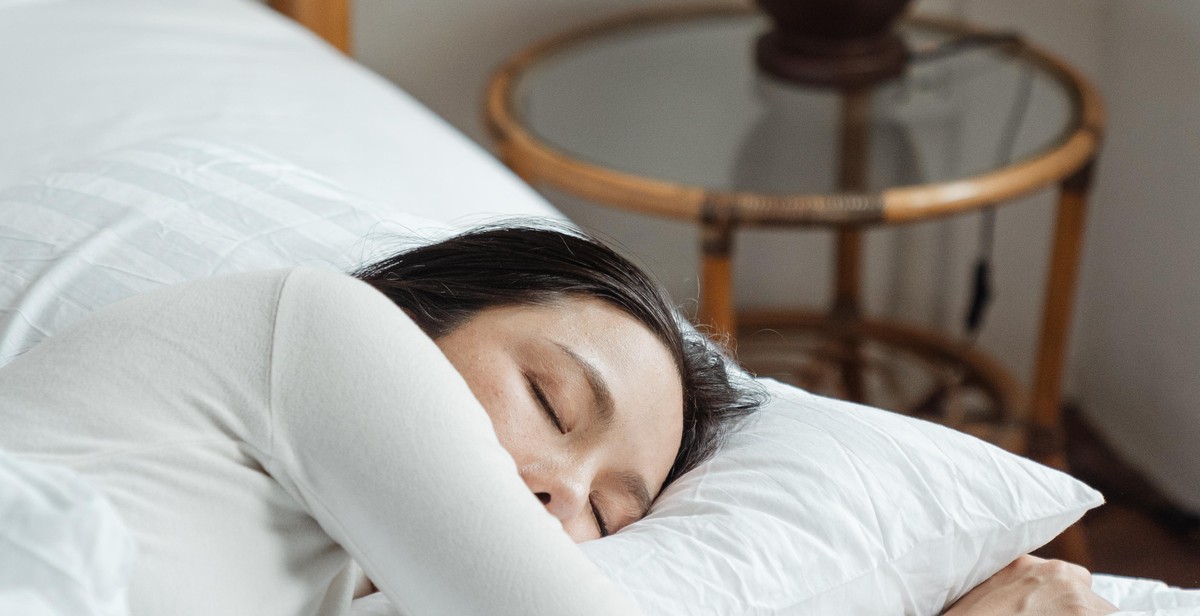How to Prevent and Manage Insomnia: Strategies for Better Sleep
As a professional article writer and content creator, I have come across many individuals struggling with insomnia. I have personally experienced the frustration and exhaustion that comes with insomnia, and I understand how it can take a toll on your physical and mental health. Insomnia is a sleep disorder that affects millions of people worldwide, and it can be caused by a variety of factors, including stress, anxiety, depression, and poor sleep habits.
Fortunately, there are many strategies you can implement to prevent and manage insomnia. In this article, I will share some of the best practices for achieving better sleep. I will cover the importance of establishing a bedtime routine, creating a sleep-conducive environment, and avoiding certain substances and activities that can interfere with your sleep. Additionally, I will discuss the benefits of incorporating relaxation techniques, exercise, and other natural remedies into your sleep regimen.
Whether you are experiencing occasional sleepless nights or chronic insomnia, these strategies can help you achieve a restful and rejuvenating sleep. By making small changes to your daily routine and habits, you can improve your sleep quality and wake up feeling refreshed and energized.
What is Insomnia?
Insomnia is a sleep disorder that affects millions of people worldwide. It is characterized by difficulty falling asleep, staying asleep, or waking up too early and feeling tired. Insomnia can be acute, lasting for a few days or weeks, or chronic, lasting for months or even years.
Defining Insomnia
According to the American Academy of Sleep Medicine, insomnia is defined as “a subjective report of difficulty with sleep initiation, duration, consolidation, or quality that occurs despite adequate opportunity for sleep, and that results in some form of daytime impairment.”
Insomnia can be categorized into three types:
- Transient insomnia, which lasts less than a week and is usually caused by stress, jet lag, or other environmental factors
- Short-term insomnia, which lasts for one to three weeks and is often related to a specific event or situation, such as a medical condition or medication side effect
- Chronic insomnia, which lasts for more than three weeks and is often associated with underlying medical or psychological conditions
Causes of Insomnia
Insomnia can be caused by a variety of factors, including:
- Stress and anxiety
- Depression
- Chronic pain
- Medical conditions such as asthma, allergies, or acid reflux
- Medications that interfere with sleep
- Environmental factors such as noise, light, or temperature
Understanding the causes and types of insomnia is important in developing effective strategies for preventing and managing this common sleep disorder.
The Negative Effects of Insomnia
Insomnia, or the inability to fall asleep or stay asleep, can have a range of negative effects on both the body and mind. Here are some of the most common physical and mental effects of insomnia:
Physical Effects
- Fatigue: One of the most obvious effects of insomnia is fatigue. When you don’t get enough sleep, you feel tired and sluggish throughout the day.
- Weight Gain: Lack of sleep can also lead to weight gain. Studies have shown that people who don’t get enough sleep are more likely to be overweight or obese.
- High Blood Pressure: Chronic insomnia can also lead to high blood pressure, which can increase the risk of heart disease and stroke.
- Weak Immune System: Lack of sleep can weaken your immune system, making you more susceptible to illness and infection.
- Increased Pain: Insomnia can also make pain worse. People with chronic pain conditions often have trouble sleeping, which can exacerbate their pain.
Mental Effects
- Anxiety and Depression: Insomnia is often linked to anxiety and depression. Lack of sleep can make it harder to cope with stress and can exacerbate symptoms of anxiety and depression.
- Memory and Concentration: Lack of sleep can also affect your memory and concentration. You may have trouble remembering things or have difficulty focusing on tasks.
- Irritability: Insomnia can also make you more irritable and moody. You may find yourself snapping at loved ones or coworkers for no reason.
- Reduced Quality of Life: Chronic insomnia can have a major impact on your quality of life. It can affect your relationships, work performance, and overall well-being.
| Physical Effects | Mental Effects |
|---|---|
| Fatigue | Anxiety and Depression |
| Weight Gain | Memory and Concentration |
| High Blood Pressure | Irritability |
| Weak Immune System | Reduced Quality of Life |
| Increased Pain |
Preventative Measures for Insomnia
Insomnia can be a challenging condition to manage, but there are preventative measures you can take to reduce its occurrence and severity. Here are some strategies for better sleep:
Sleep Hygiene
Sleep hygiene refers to the habits and practices that promote quality sleep. This includes:
- Going to bed and waking up at the same time every day
- Avoiding naps during the day
- Making your bedroom comfortable and conducive to sleep
- Avoiding stimulating activities before bedtime, such as exercise or using electronic devices
Establishing a Routine
Establishing a bedtime routine can help signal to your body that it is time to sleep. This can include activities such as:
- Reading a book
- Taking a warm bath or shower
- Doing relaxation exercises, such as deep breathing or meditation
Creating a Relaxing Environment
Your environment can have a significant impact on your ability to sleep. Creating a relaxing environment can include:
- Keeping your bedroom cool and dark
- Using comfortable bedding
- Blocking out noise with earplugs or a white noise machine
Limiting Stimulants and Alcohol
Stimulants such as caffeine and nicotine can interfere with your ability to fall asleep and stay asleep. It is best to avoid consuming these substances close to bedtime. Similarly, while alcohol may initially make you feel drowsy, it can disrupt your sleep later in the night.
| Sleep Hygiene | Establishing a Routine | Creating a Relaxing Environment | Limiting Stimulants and Alcohol |
|---|---|---|---|
| Going to bed and waking up at the same time every day | Reading a book | Keeping your bedroom cool and dark | Avoiding stimulants and alcohol before bedtime |
| Avoiding naps during the day | Taking a warm bath or shower | Using comfortable bedding | |
| Making your bedroom comfortable and conducive to sleep | Doing relaxation exercises, such as deep breathing or meditation | Blocking out noise with earplugs or a white noise machine | |
| Avoiding stimulating activities before bedtime, such as exercise or using electronic devices |
Natural Remedies for Insomnia
Insomnia can be a frustrating condition to deal with, but there are several natural remedies that can help improve sleep quality and promote relaxation. Here are some of the most effective natural remedies for insomnia:
Herbal Supplements
Herbal supplements such as valerian root, chamomile, and passionflower have been used for centuries to promote relaxation and improve sleep quality. These supplements can be taken in capsule or tea form and are available at most health food stores. It is important to consult with a healthcare professional before taking any herbal supplements, especially if you are taking medication or have a medical condition.
Aromatherapy
Aromatherapy involves the use of essential oils to promote relaxation and improve sleep quality. Some of the most effective essential oils for insomnia include lavender, chamomile, and bergamot. These oils can be diffused in a room or added to a warm bath to promote relaxation before bedtime.
Acupuncture
Acupuncture is a traditional Chinese medicine practice that involves the insertion of thin needles into specific points on the body to promote relaxation and improve sleep quality. Acupuncture has been shown to be effective in treating insomnia, and many people find it to be a relaxing and rejuvenating experience.
Meditation
Meditation is a relaxation technique that involves focusing the mind on a specific object or thought to promote relaxation and reduce stress. Meditation has been shown to be effective in improving sleep quality and reducing symptoms of insomnia. There are many different types of meditation, including mindfulness meditation and guided meditation, and it is important to find a practice that works best for you.
| Remedy | Description |
|---|---|
| Herbal Supplements | Valerian root, chamomile, and passionflower |
| Aromatherapy | Essential oils such as lavender, chamomile, and bergamot |
| Acupuncture | Traditional Chinese medicine practice involving thin needles |
| Meditation | Relaxation technique involving focusing the mind on a specific object or thought |

Medical Treatment for Insomnia
If lifestyle changes and natural remedies do not work, medical treatment for insomnia may be necessary. There are several options available, including prescription medication, over-the-counter medication, and cognitive-behavioral therapy.
Prescription Medication
Prescription medication is available for short-term and long-term treatment of insomnia. These medications are usually reserved for severe cases of insomnia or when other treatments have failed.
- Benzodiazepines: These drugs are central nervous system depressants and can help relax the body and mind. However, they can be habit-forming and may cause drowsiness during the day.
- Non-benzodiazepine hypnotics: These medications work by targeting specific receptors in the brain to induce sleep. They are typically less addictive than benzodiazepines and have fewer side effects.
Over-The-Counter Medication
Over-the-counter medications are available without a prescription and can help relieve occasional insomnia. However, they should not be used for long-term treatment and may cause side effects.
- Antihistamines: These drugs are commonly used as sleep aids and can cause drowsiness. However, they may also cause dry mouth, constipation, and blurred vision.
- Melatonin: This natural hormone helps regulate sleep and wake cycles. It is available in supplement form and may help improve sleep quality, especially in people with jet lag or shift work disorder.
Cognitive Behavioral Therapy
Cognitive-behavioral therapy (CBT) is a type of talk therapy that can help people with insomnia identify and change negative thought patterns and behaviors that may be interfering with sleep. CBT can be just as effective as medication for treating insomnia and has no side effects.
| Treatment | Pros | Cons |
|---|---|---|
| Prescription medication | Effective for severe cases, short-term relief | Potential for addiction, side effects |
| Over-the-counter medication | Accessible, can relieve occasional insomnia | Potential for side effects, not recommended for long-term use |
| Cognitive-behavioral therapy | No side effects, effective for long-term relief | May not work for everyone, requires commitment and effort |

Conclusion
Insomnia can be a frustrating and exhausting experience, but there are many strategies that can help prevent and manage it. By making simple lifestyle changes, practicing good sleep hygiene, and seeking professional help when necessary, you can improve your chances of getting the restful sleep you need.
Lifestyle Changes
Changing your daily habits can have a significant impact on your sleep quality. This includes avoiding caffeine and alcohol, exercising regularly, and establishing a consistent sleep schedule.
Sleep Hygiene
Practicing good sleep hygiene can also help prevent and manage insomnia. This includes creating a relaxing sleep environment, avoiding screens before bedtime, and using relaxation techniques such as meditation or deep breathing.
Professional Help
If you have tried lifestyle changes and sleep hygiene techniques without success, it may be time to seek professional help. A healthcare provider can help identify underlying medical or psychological issues that may be contributing to your insomnia and recommend appropriate treatment options.
Remember, getting enough sleep is essential for overall health and well-being. By taking steps to prevent and manage insomnia, you can improve your sleep quality and enjoy a more restful and rejuvenating sleep every night.
